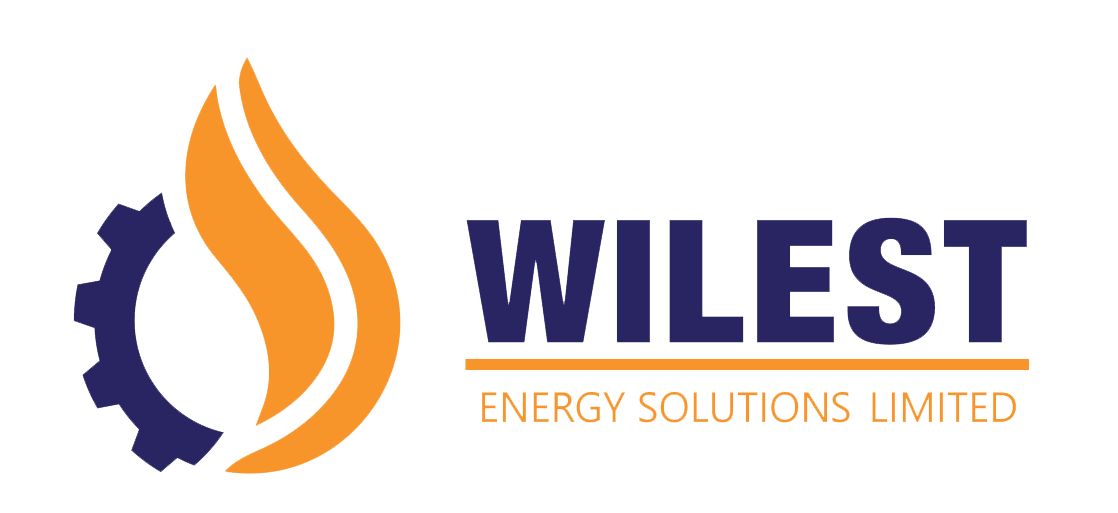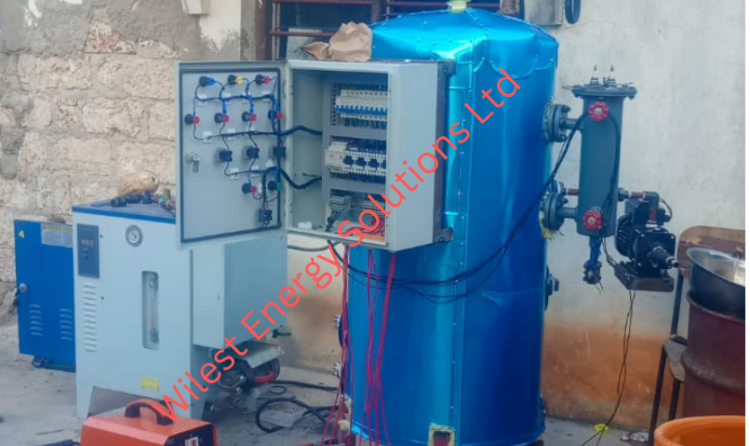Healthcare facilities generate a significant amount of waste, including infectious and non-infectious materials. This waste can pose a significant threat to public health and the environment if not properly managed. However, using Bio-medical & General Waste incinerators can help healthcare facilities to effectively manage their waste while promoting sustainability and reducing their carbon footprint.
The Importance of Sustainable Waste Management in Healthcare Facilities
The management of healthcare waste is a critical component of providing safe and effective healthcare services. Healthcare facilities generate a wide range of waste materials, including infectious and non-infectious waste, which if not managed properly, can pose a significant risk to public health and the environment.
Improper healthcare waste management can lead to the spread of infectious diseases, such as hepatitis B and C, HIV, and other viral and bacterial infections. For instance, discarded needles, syringes, and other sharps can cause injuries and increase the risk of infections among healthcare workers and patients. Additionally, contaminated waste can pollute the air, soil, and water, leading to serious environmental consequences.
Moreover, healthcare facilities that do not adopt sustainable waste management practices may face legal consequences, including fines and penalties, for violating environmental regulations.
To mitigate these risks, it is critical for healthcare facilities to adopt sustainable waste management practices. Sustainable waste management involves the reduction, reuse, and recycling of waste materials to minimize the amount of waste generated and to promote resource conservation.
Adopting sustainable waste management practices in healthcare facilities can help to create a safer and healthier environment for patients and staff. Properly managed waste reduces the risk of exposure to infectious agents and other hazardous materials. It also promotes a cleaner and more hygienic environment, which is essential for maintaining a high standard of healthcare services.
Medical Waste Incineration
Medical waste incineration is the process of burning wastes produced by healthcare facilities, including hospitals, clinics, and research facilities. These wastes can be infectious or non-infectious, and incineration is one of the most effective ways to manage them.
Infectious medical waste, also known as “red bag” waste, includes items such as used needles, gloves, and other materials contaminated with bodily fluids. Non-infectious medical waste includes items such as office supplies, packaging materials, and food waste.
Incineration is a proven method of managing medical waste because it can destroy pathogens and other hazardous materials, reducing the risk of contamination and promoting a safer and healthier environment. Incineration also reduces the volume of waste generated and minimizes the amount of waste that needs to be disposed of in landfills or other waste management facilities.
In addition to reducing the risk of contamination and promoting a safer environment, medical waste incineration has several other benefits. For example, it is a cost-effective way to manage medical waste compared to other methods, such as autoclaving or chemical treatment. It also allows healthcare facilities to manage their waste on-site, reducing the need for transportation and handling by third-party waste management companies.
Overall, medical waste incineration is a crucial component of sustainable waste management practices in healthcare facilities. By using incinerators to manage their medical waste, healthcare facilities can promote a safer and healthier environment for patients and staff while minimizing their impact on the environment.
The Environmental Implications of Medical Waste Incineration
While medical waste incineration has many benefits for healthcare facilities, it is important to consider its potential environmental impacts. One of the main concerns is air pollution, as incinerators can release pollutants such as nitrogen oxides, sulfur dioxide, and particulate matter into the atmosphere. These pollutants can have negative impacts on human health and contribute to climate change.
However, it is important to note that modern incinerators, like those produced by Wilest Energy Solutions, are designed to minimize these environmental impacts. For example, Wilest incinerators are composed of twin chambers, pyrolytic, and controlled air, which reduces the amount of pollutants released into the atmosphere. They are also equipped with advanced emission control systems that capture pollutants and prevent them from being released into the air.
In addition to minimizing air pollution, modern incinerators can also reduce greenhouse gas emissions. When medical waste is incinerated, it is converted into energy in the form of heat, which can be used to generate electricity or heat buildings. This process reduces the need for fossil fuels, such as coal or natural gas, which are major sources of greenhouse gas emissions.
Overall, the positive environmental implications of medical waste incineration depend on the use of modern, environmentally safe incinerators that comply with existing regulations. By using these types of incinerators, healthcare facilities can reduce their environmental impact while still effectively managing their medical waste.
Success Story: Nazareth Hospital in Kiambu County
Nazareth Hospital in Kiambu County is a great example of a healthcare facility that has successfully implemented sustainable waste management practices, including the use of Wilest Energy Solutions incinerators. The hospital recognized the need to improve its waste management practices to reduce the risk of infection and promote a safer and healthier environment for patients and staff.
With the help of Wilest Energy Solutions, Nazareth Hospital installed modern incinerators that were designed to effectively manage both infectious and non-infectious waste. The incinerators were composed of twin chambers, pyrolytic and controlled air, which minimized the amount of pollutants released into the atmosphere. They were also equipped with advanced emission control systems that captured pollutants and prevented them from being released into the air.
The implementation of these sustainable waste management practices has led to significant benefits for Nazareth Hospital. For example, the hospital has been able to reduce the volume of waste generated, which has resulted in cost savings and improved operational efficiency. In addition, the use of incinerators has improved the safety of the hospital environment by reducing the risk of contamination and infection.
Furthermore, the implementation of these sustainable waste management practices has enhanced the hospital’s sustainability by reducing its environmental impact. By using modern incinerators, the hospital has been able to minimize its air pollution and greenhouse gas emissions, contributing to a greener future.
Overall, the success of Nazareth Hospital in implementing sustainable waste management practices demonstrates the importance of using modern incinerators, like those produced by Wilest Energy Solutions, to effectively manage medical waste in healthcare facilities. By doing so, healthcare facilities can promote a safer and healthier environment for patients and staff while reducing their environmental impact.
Wilest Energy Solutions: Revolutionizing Healthcare Waste Management in Kenya
Wilest Energy Solutions is revolutionizing healthcare waste management in Kenya and beyond with their innovative Bio-medical & General Waste incinerators. As a leading provider of waste management solutions, Wilest Energy Solutions has been skillfully installing, repairing, and commissioning incinerators in Kenya and other regions, helping healthcare facilities manage their waste effectively and sustainably.
One of the key advantages of Wilest Energy Solutions’ incinerators is their wide variety, which allows them to cater to different waste types and quantities. The incinerators are composed of twin chambers, pyrolytic systems, and controlled air, which ensure that the waste is combusted safely and efficiently. Additionally, the incinerators comply with the National Environmental Management Authority (NEMA) standards, making them environmentally safe and compliant with existing regulations.
Wilest Energy Solutions incinerators are not limited to just medical waste but can also handle general waste. They are capable of disposing of bulk and batch loads of medical, general, and pathological waste, which makes them a simple yet cost-effective solution for waste management in healthcare facilities. The incinerators are available in capacities ranging from 10 kg/hr to 200 kg/hr, which ensures that they can handle the waste generated by different healthcare facilities without producing smoke or odor.
One of the most significant benefits of using Wilest Energy Solutions’ incinerators is their ease of operation. Healthcare facilities can easily operate these incinerators, saving time and reducing the burden of managing waste. Additionally, the incinerators are cost-effective, as they reduce the need for expensive waste disposal services, which can be particularly beneficial for small healthcare facilities.
Furthermore, Wilest Energy Solutions’ incinerators are energy efficient. They convert waste into ash, flue gas, and heat, which can be harnessed for other purposes. This reduces the facility’s dependence on external sources of energy, making them more self-sufficient and sustainable in the long run.
In conclusion, Bio-medical & General Waste incinerators are a critical component of sustainable healthcare waste management. By adopting these incinerators, healthcare facilities can effectively manage their waste while reducing their carbon footprint and promoting a safer and healthier environment. With the support of companies like Wilest Energy Solutions, healthcare facilities in Kenya and beyond can lead the way in sustainable healthcare waste management.







